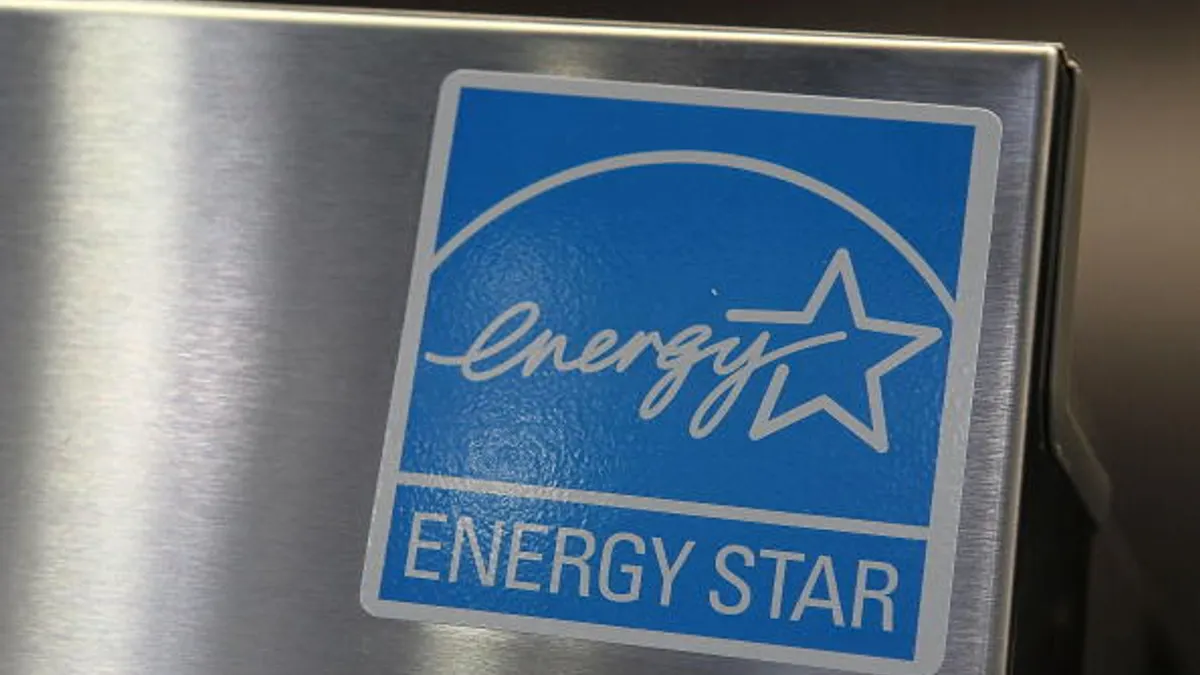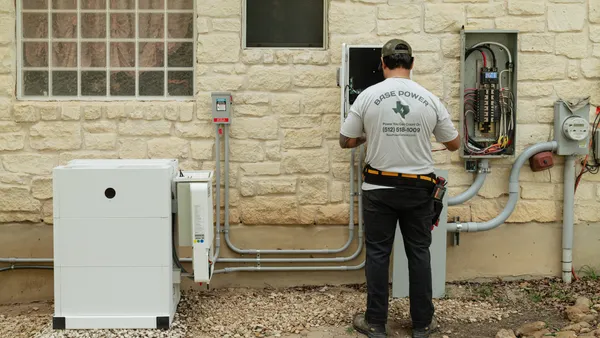Dive Brief:
- Advocates for utility-sponsored programs that aggregate electricity storage resources like water heaters or electric vehicles announced new support for the Community Storage Initiative on Monday from key stakeholder groups, including national utility trade associations, environmental groups, and manufacturers.
- Over a dozen major utilities signed on to the initiative’s guiding principles and plan for practical steps to increase energy storage availability. With more energy storage available on the grid, initiative backers say, variable renewables will be more viable and electricity delivery to customers more efficient and cost-effective.
- Among the Initiative’s Guiding Principles are a call for voluntary participation, increased dissemination of information about community storage, and the development of community storage in the marketplace.
Dive Insight:
The Community Storage Initiative is a group of utility sector businesses and non-profits "focused on collaborative information sharing and coordinated market development efforts in support of wide-scale implementation of energy storage technologies," according to its website.
The group first went live in February with a report it commissioned from the Brattle Group highlighting the opportunities for energy storage and demand management in electric water heaters.
At the time, Gary Connett, director of member services at co-op Great River Energy told Utility Dive his vision was “a battery in every basement, and gas in every garage," referring to smart water heaters and electric vehicles. Connett was announced as the chair of the Community Storage Initiative on Monday.
The group also announced its charter sponsors, including the National Rural Electric Cooperative Association (NRECA), the American Public Power Association (APPA) and the Edison Electric Institute (EEI) — the national trade groups for U.S. electric cooperatives, municipal utilities, and investor-owned utilities, respectively.
In addition to information sharing and market development practices, the initiative's principles also call for the fair allocation of the storage benefits to investors and providers and for the use of the storage to integrate renewables, protect the environment, and benefit communities.
The initiative has attracted support from a wide array of stakeholders. Charter sponsors include the Natural Resources Defense Council, a mainstream environmental group, and the Peak Load Management Alliance, a demand management and efficiency group.
Utilities of all stripes have been keen as well. At least 16 electric cooperatives are among the Initiative’s first members. Major investor-owned utility-members include Duke Energy and Green Mountain Power. Public power providers Marquette Board of Light and Power and the Wellesley Municipal Light Plant are also among the early supporters.
Private sector storage manufacturers GARN, Ice Energy, Power Over Time, Steffes Corporation, Vaughn Thermal Corporation, and Sunnovations are also initiative members.
Chief among the challenges facing the new initiative will be defining roles for aggregating storage and other energy resources on the utility distribution system. A recent survey from Greentech Media revealed that opinions are split in the utility sector over who will be responsible for aggregating DERs in the future:












